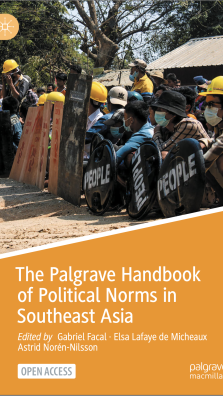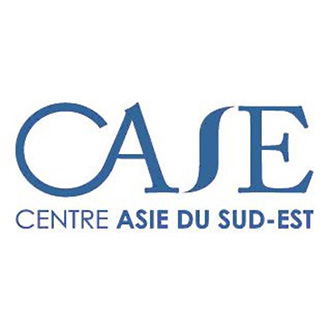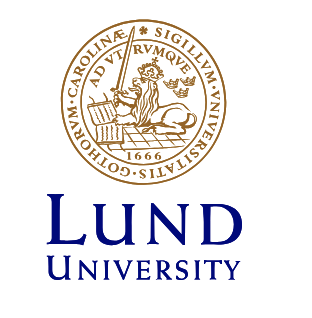Exploring the new dynamics of political norms in Southeast Asia

In Southeast Asia, government decisions and international agreements condition the implementation of political rights profoundly shaped by a set of infra- or para-institutional norms. These political norms emanate from different registers developed during colonial periods, at the time of independence and national construction, but also during contemporary transnational exchanges, recently marked by the rise in power of China. They also stem from various regimes, more or less entrenched, organizing political rules, principles and habits, which may be religious, customary, clientelist or linked to local political cultures.The research, which examines political norms in the countries of the region from different angles, including international and national law, informal norms, customs and practices, sheds light on the conditions and forms of political change, immobility and resistance.
The European seminar "Current Dynamics in Southeast Asia: New perspectives in political economy and comparative politics" is inaugurated by the scientific discussion of the Palgrave Handbook of Political Norms in Southeast Asia (2024), edited by Gabriel Facal (IRASEC, Bangkok), Elsa Lafaye de Micheaux (CASE, Paris) and Astrid Norén-Nilsson (ACE, Lund). Offering broad theoretical frameworks and analyses articulated around different themes and regional jurisdictions, the book provides an overview of major events and numerous contemporary phenomena, movements and discourses that have contributed to the rise of authoritarianism and the transformation of political norms throughout Southeast Asia. Over the course of its thirty-four chapters and interviews, the authors propose definitions, categories and typologies of different normative regimes, and highlight the ways in which these norms have emerged and evolved. Constitutional practices and human rights, the force of religion, manifestations in public space, Asian values (in relation to authoritarianism), indigenous peoples and religious groups in civil society, blurred spaces between urban and rural, the importance of social media in transnational movements among younger generations are all common themes within the region.
After a general introduction by the two editors, the assembled contributors will unfold and discuss important political dynamics at work. Through the study of contemporary Southeast Asian configurations (Southeast Asia, Vietnam, Indonesia, Cambodia, Malaysia), at the crossroads of different normative regimes, relative to transnational norms, local government models, traditional norms, or even village forms.
Destined for a wide audience of academics, policymakers and citizens from different disciplines, the book (in open access) has already met with remarkable publishing success, with over 50,000 downloads within two months of publication. "A colourful take on the region's contemporary political movements" (Caroline Hughes, University Notre Dame, USA). "A sophisticated and compelling argument about how to concieve and explain political norms and dynamics" (Garry Rodan, Murdoch University, Australia). "An Amazing repository of expertise and perspectives on important topics confronting contemporarySoutheast Asia" (Ardeth Maung Tawnghmung, Lowell, USA).
The book is freely available here.
Program
14h
- Presentation of the European seminar
- General presentation of the book by Astrid Norén-Nilsson and Elsa Lafaye de Micheaux
14h15-15h45
- Emmanuel Pannier, Paloc, IRD (chapter 2 "Institutional Pluralism and Interactions Between Normative Systems: A Theoretical Overview" and 23 "Social Regulatory Regimes in Northern Vietnam: How Interpersonal Network Norms, State Laws, and MarketRules Interact")
- Chloé Froissart, IFRAE, Inalco (chapter 8 "Does China Have a Model to Export?")
- Thi Thanh Phuong Nguyen-Pochan, CEMTI & CASE, UCO Laval (chapter 5 "The Draft Law on Association in Vietnam: Legal, Political, and Practical Norms Under Debate")
- Discussant : Daniel Peterson, Queen & Mary College, U. of London.
3:45pm
Coffee and tea break
4pm-6pm
- Catherine Scheer, EFEO (chapter 6 "Christian NGOs: From Marginal Liberation Theologists to Regional Policy-Shapers")
- Marie-Sybille de Vienne, CASE (chapter 24 "Malay Kingship in Contemporary Malaysia: From Cultural Legitimacy to Social Proficiency")
- Gloria Truly Estrelita, CASE (chapter 15 "Beyond Leftist-Phobia: Political Prejudice and Stigma in Indonesia")
- Discussant: Eugénie Mérieau, Université Paris Sorbonne.
6pm-7:30pm
Meeting with authors and members of the seminar's scientific committee (Salons).
Contact: View e-mail


